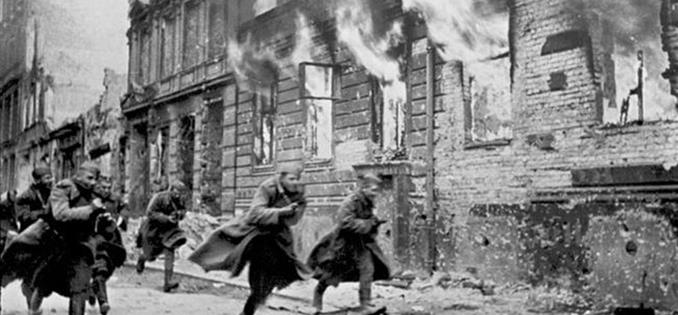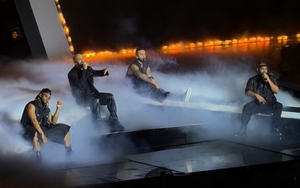ON this war-themed evening a small brass and percussion line-up opened with Aaron Copland’s Fanfare for the Common Man, a celebration, in the composer’s own words, of the people who were doing the dirty work in the war and therefore deserved a fanfare.
This was a concert essentially about being human and how we process the dark forces within mankind that lead to war
Conductor Andrew Gourlay, a late replacement for the indisposed Ryan Wigglesworth, must have felt some relief at beginning with this short well known piece before leading the Hallé through Britten’s challenging Sinfonia Da Requiem and, especially, Tippett’s oratorio in the second half. Gourlay is, however, no stranger to Tippett, having conducted a critically acclaimed production of The Ice Break last year. He handled these three very different pieces with a calm sensitivity and finesse.
Britten’s Sinfonia Da Requiem, a dazzlingly experimental reflection on the horror and pity of war from the 27-year-old Britten begins with a haunting lament that builds steadily to a climax, erupting into the frenzied Dies Irae, in which saltando strings signal a disruption that culminates in a fragmented musical representation of panicked entrapment as notes ricochet round the orchestra. Britten maintained that he wanted the piece to be as anti-war as possible and there is certainly scepticism about the glory of conflict here. Even the eventual fusion of disparate themes in the gentle final Requiem Aeternum, evocatively realised by the Hallé, strikes the listener as a longed for rather than an assured return to peace.
This was a concert essentially about being human and how we process the dark forces within mankind that lead to war. Michael Tippett’s A Child of Our time, composed between 1939 and 1941 and using the composer’s own words, is the archetypal exploration of this theme. Searingly apt then and equally relevant now, it comes like a missive from the front line of human suffering.
In his poem, Prayer before Birth, Louis MacNeice wrote Let not the man who is beast or who thinks he is God come near me and Tippett, in this Jungian reflection with overtones of T. S. Eliot, uses orchestra, choir and soloists to explore the damage caused by the divided psyche and the tyranny of the self-righteous. Atrocities of war, addressed unflinchingly with specific reference to pogroms and Nazi purges, are mirrored in the trauma of the individual.
When a Jewish boy, who kills a German officer in revenge for what has been done to his people, unleashes the horrors of Kristallnacht, the mezzo-soprano (in lines beautifully delivered by Jennifer Johnston) warns us, it is his demonic self that rises and he shoots only his dark brother. Violence breeds violence.
 Kristallnacht - in two days over 250 synagogues were burned
Kristallnacht - in two days over 250 synagogues were burnedThe depth and range of the piece were fully explored by the excellent Hallé choir and the four soloists. Sophie Bevan (soprano) and Mark Padmore (tenor) brought great pathos to the lament of the working man and woman in the opening section, perhaps the most moving part of the whole as it then descends into the wistful, death-wishing spiritual Steal away.
In an oratorio modelled on Bach’s passions, the use of spirituals as a chorale to punctuate the narrative and chart the changing moods is a stroke of genius. Not only do they reference slavery but they broaden and deepen the canvas of the entire work by reaching out towards a desired but by no means guaranteed peace, especially in the final Deep River which follows the plea (delivered by soloists and choir) to know my shadow and my light, so that I shall at last be whole. The optimistic references to spring and renewal of the earth subside into Deep river, my home is over Jordan – peace in the next world, not in this.
Matthew Brook held the piece together powerfully as the narrator/evangelist, while Jennifer Johnston’s mature mezzo gave a chilling inevitability to the warnings of destruction and, in part three, the beautiful hymn of hope with its Jungian feminine twist The soul of man is impassioned like a woman. As the boy, Mark Padmore’s soaring tenor expressed the anguish of crushed idealism, especially when the boy sings in his prison at the close of part two. A remarkable, poignant evening from all concerned.






